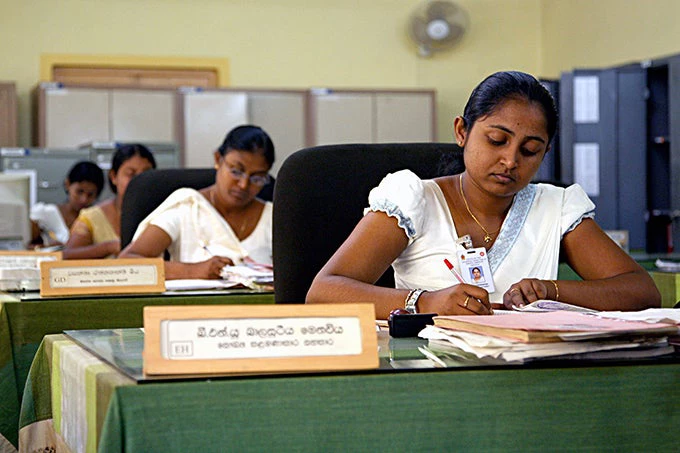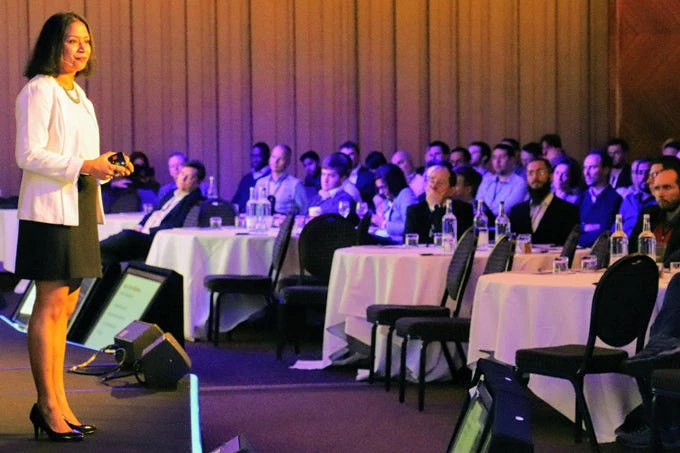
We have a strict ‘no jerks’ policy at the company where I work. It means we just don’t have room for people who bully or mock their co-workers. Our employees don’t invade each other’s personal space or make uninvited personal contact. Women in Sri Lanka routinely experience sexual harassment in the workplace, but policies like this don’t favor just one gender. Men enjoy the benefits as well.
Unfortunately, my company’s policy is an exception rather than the rule. Recently, I had a chance to meet Sri Lankan women engineers and hear their experiences. One told me about how challenging going to the field was because her male subordinates refused to respect her or follow her directions. Other women have been denied promotions, paid less than their male peers and sexually harassed at work.

Sometimes it’s more subtle than that. In every company I have ever worked for, women are in the minority. They may not have the same interests as their male colleagues or be able to socialize. Not everyone is comfortable conversing in the male lingo, just to fit in. When work is discussed in such social settings, women can very easily miss out. Each time something like this happens, it’s a loss for the company and for the country.
When the opposite of these things happen – when we value the contribution of everyone and treat people with respect – we reap the benefits.
For instance, at work one of my responsibilities is managing multiple cross-functional teams in order to successfully create and deliver financial solutions to global banks and financial institutions. We’ve found that the more diverse our team is, the better our product is. This means we have people of both genders, from different ethnicities and backgrounds.
Quite by chance, my own team has several women on it – and it’s clear they approach problems differently from their male colleagues. Working together, they’ve developed some unique solutions and more user-friendly products.
It makes sense to have these different perspectives because we want to appeal to an increasingly diverse market. It’s why we have not only a gym but a crèche. It’s why we have regular anti-sexual harassment training and awareness programs. Our company’s reputation for providing a really safe and supportive working environment has meant we attract some of the most talented and experienced people. In the end, being pro-diversity isn’t about ticking boxes and keeping up appearances – it’s about creating the best product we can. So companies need to adopt policies that reflect this.
When I was pregnant and later when I had my son, supportive company policies meant I was able to work from home on flexible hours. My husband works too – and that’s the other half of the equation.
Women who have to work and manage the home and child-care can really struggle. When we first got married, Suren and I established that housework would be divided 50-50, and when our son came along, childcare also became 50-50. We’ve gotten used to sharing the responsibility. We are both equal in our marriage, and our careers have the same weight. We don’t prioritize one at the expense of the other.
I am glad my son will grow up thinking of equal marriages like this as being normal. It was also how I was raised. In my home, both my mother and father worked and both their jobs were seen as equally important. My brother and I were allowed to pursue our own interests – I was never told by my parents that I couldn’t do something because I was a girl. Studying mathematics, my teachers were mostly women, and they too encouraged me to study STEM subjects. Nobody pushed me to be an engineer - it was enough that they didn’t put up any obstacles.
There needs to be a real change in what we consider women’s work. We can start at home by telling our girls they can do whatever they set their minds to, and by having mothers and fathers be equal partners in caring for their families. We can continue this at work by recognizing that everyone deserves a safe and supportive working environment. We can establish this at a national level with policies that guarantee these rights.
And then as women, we can be bolder and more determined. I regularly represent my company at a lot of international technology conferences. Almost always the audience is filled with men. But when I’m delivering my talk, it’s a woman taking center stage. I embrace standing out – I think it gives me an edge. It’s made me work harder to make sure I really know my stuff. Women don’t ever have to take a back seat to men – we just have to learn how to back ourselves.


Join the Conversation